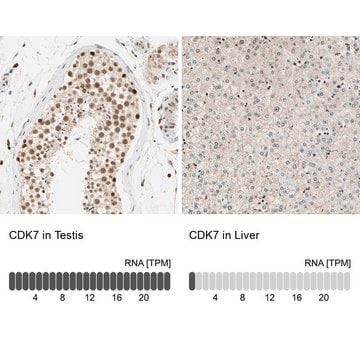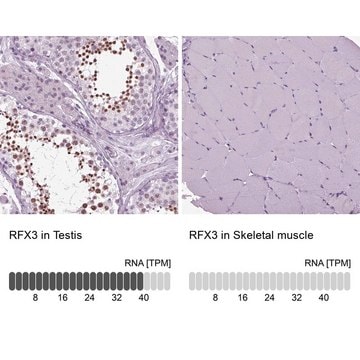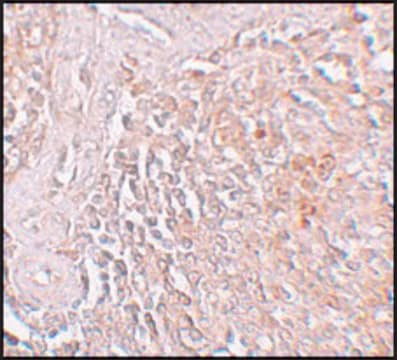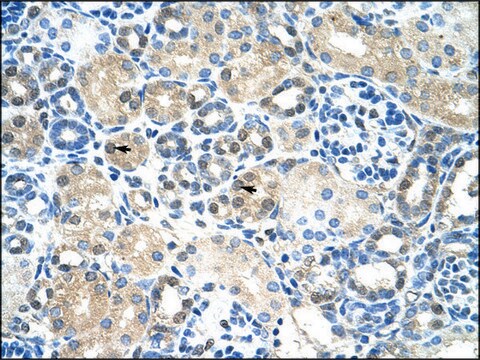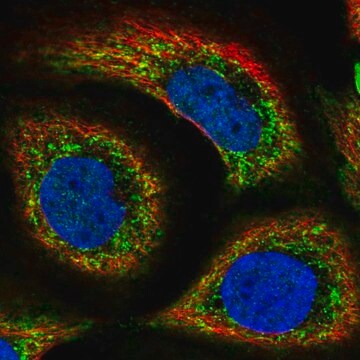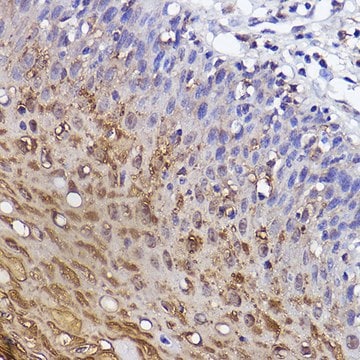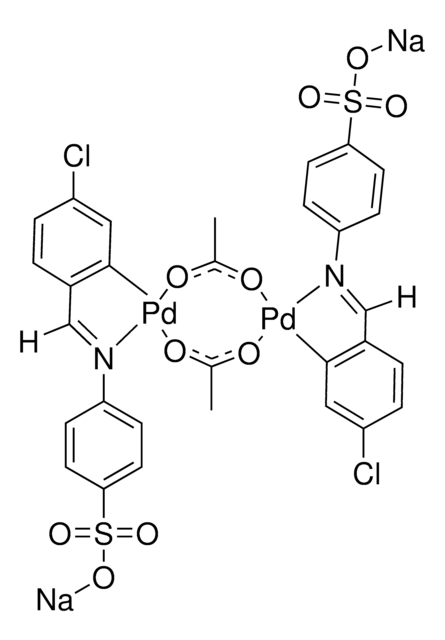C7089
Monoclonal Anti-Cdk7/CAK antibody produced in mouse
clone MO-1.1, ascites fluid
About This Item
Recommended Products
biological source
mouse
conjugate
unconjugated
antibody form
ascites fluid
antibody product type
primary antibodies
clone
MO-1.1, monoclonal
mol wt
antigen 40 kDa
contains
15 mM sodium azide
species reactivity
human
technique(s)
immunocytochemistry: suitable
immunohistochemistry (frozen sections): suitable
immunoprecipitation (IP): suitable
microarray: suitable
western blot: 1:50,000 using a cultured human cell line extract
isotype
IgG2b
UniProt accession no.
shipped in
dry ice
storage temp.
−20°C
target post-translational modification
unmodified
Gene Information
human ... CDK7(1022)
General description
Specificity
Immunogen
Application
- Immunocytochemistry
- Immunohistochemistry (frozen sections)
- Immunoprecipitation
- Microarray
- Western blotting at a dilution of 1:50,000 using a cultured human cell line extract
Biochem/physiol Actions
Disclaimer
Not finding the right product?
Try our Product Selector Tool.
Storage Class Code
10 - Combustible liquids
WGK
nwg
Flash Point(F)
Not applicable
Flash Point(C)
Not applicable
Certificates of Analysis (COA)
Search for Certificates of Analysis (COA) by entering the products Lot/Batch Number. Lot and Batch Numbers can be found on a product’s label following the words ‘Lot’ or ‘Batch’.
Already Own This Product?
Find documentation for the products that you have recently purchased in the Document Library.
Our team of scientists has experience in all areas of research including Life Science, Material Science, Chemical Synthesis, Chromatography, Analytical and many others.
Contact Technical Service